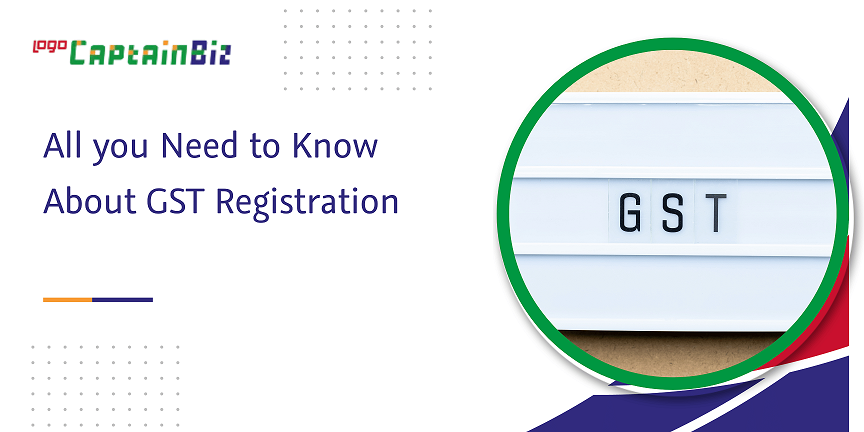Specialist Insights: Why CFO Account & Services is Perfect for GST Registration in Singapore
Specialist Insights: Why CFO Account & Services is Perfect for GST Registration in Singapore
Blog Article
Unlocking the Advantages of GST Registration: A Comprehensive Overview for Businesses Aiming To Improve Tax Obligation Compliance
Browsing the complicated landscape of tax obligation compliance can be a complicated task for companies of all sizes. However, with the application of Product and Provider Tax Obligation (GST) enrollment, business can open a myriad of benefits that exceed plain adherence to policies. From optimizing tax obligation performance to boosting trustworthiness in the market, the advantages of GST registration are manifold. By diving into this comprehensive overview, services can get useful insights into exactly how to streamline their tax compliance processes and harness the complete capacity of GST for their operations.
Recognizing GST Enrollment Advantages
Understanding the benefits of GST registration is critical for organizations aiming to simplify their tax compliance processes and improve their reliability within the market. GST enrollment enables companies to make use of themselves of different tax obligation credit reports on inputs, decreasing the total tax obligation. It additionally enables the smooth flow of input tax credit history across the supply chain, ensuring that taxes are levied only on the value enhancement at each stage.
In addition, GST enrollment offers organizations with accessibility to an extra comprehensive market by making interstate purchases more accessible and eliminating the need for numerous state-specific registrations. This simplification not just lowers the compliance worry yet likewise cultivates convenience of doing company. Additionally, signed up companies obtain an affordable edge as many B2B clients choose to engage with GST-registered vendors to declare input tax obligation credit rating themselves.
Streamlining Tax Obligation Compliance Processes
The implementation of GST registration not just improves a business's tax compliance efficiency however likewise plays a vital role in simplifying its total tax procedures. By signing up for GST, businesses are needed to maintain thorough records of their purchases and sales. This organized recording not just makes sure compliance with tax guidelines however likewise offers a clear introduction of monetary deals, making it less complicated to keep an eye on and track tax liabilities.
Furthermore, GST registration demands the filing of normal income tax return, which triggers services to remain updated with their monetary data and commitments - Why choose CFO Account & Services for GST registration in Singapore. This uniformity in filing returns not just helps in avoiding fines for non-compliance yet also help in keeping accurate economic documents, which is crucial for making informed service decisions
Additionally, the integration of GST right into an organization's procedures usually causes the fostering of automatic accounting systems. These systems not just simplify the process of tax obligation estimations yet additionally minimize the possibility of errors in tax obligation reporting, further improving the effectiveness of tax conformity procedures.

Leveraging Input Tax Obligation Credit Advantage
Input tax debt enables businesses to offset the tax they have paid on inputs against the tax obligations they are liable to pay on outputs, therefore reducing the overall tax obligation obligation. By asserting input tax obligation credit score, companies can avoid tax cascading, where tax obligations are imposed on currently tired amounts within the supply chain, leading to increased costs.
Moreover, leveraging input tax obligation credit score benefit promotes conformity with GST policies, cultivating transparency and accountability in the tax system. Companies that effectively utilize input tax obligation credit report can improve their cash flow administration, as the credit scores quantity can be used to settle future tax liabilities. Ultimately, organizations that harness the input tax obligation credit advantage obtain a competitive edge by decreasing costs, enhancing profitability, and ensuring tax compliance in a structured way.
Enhancing Business Integrity With GST

Maximizing Tax Obligation Efficiency Through Registration
By strategically leveraging GST registration, companies can optimize their tax efficiency and improve monetary procedures. GST enrollment enables businesses to claim input tax credit scores on the GST paid on acquisitions, thus lowering the total tax obligation responsibility. This enrollment likewise makes it possible for companies to pass on the benefit of input tax debt to their clients, making their solutions or items much more affordable on the market.
In addition, being signed up under GST supplies services with the opportunity to increase their market reach. Several organizations and government entities prefer to engage just with registered providers to make use of themselves of input tax obligation credit benefits. This preference gives registered services an one-upmanship and opens methods for collaboration and development.
In addition, GST registration helps with compliance with tax obligation laws and laws, decreasing the risk of fines or fines as a result of non-compliance (Why choose CFO Account & Services for GST registration in Singapore). By keeping proper tax obligation records and declaring routine returns, businesses can make sure smooth operations and develop an online reputation for dependability and openness in the eyes of both consumers and regulatory authorities. Fundamentally, taking full advantage of tax effectiveness via GST enrollment is a strategic move that can produce long-lasting benefits for businesses

Final Thought
This includes enhancing tax compliance procedures, leveraging input tax obligation debt advantage, enhancing business trustworthiness, and making the most of tax effectiveness. On the whole, GST enrollment is an essential step for companies looking to operate effectively and effectively in the present tax landscape.
GST registration allows services to make use of themselves of different tax obligation credit reports on inputs, lowering the total tax obligation responsibility.The application of GST enrollment not only enhances a business's tax compliance performance find yet also plays a vital role in streamlining its total tax procedures. Input tax obligation debt enables businesses to balance out the tax obligation they have actually paid on inputs versus the taxes they are accountable to pay on outputs, thereby decreasing the overall tax obligation obligation. By declaring input tax credit, businesses can protect against tax cascading, where tax obligations are imposed on currently tired amounts within the supply chain, leading to raised expenses. GST registration allows businesses to claim input tax obligation debts on the GST paid on purchases, thus minimizing the overall tax obligation liability.
Report this page